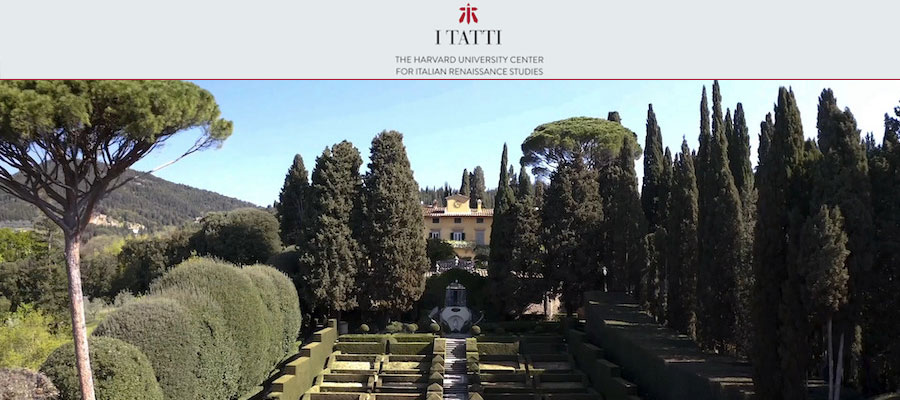Fifteen I Tatti Residential Fellowships, each for twelve months, are available annually for post-doctoral research in any aspect of the Italian Renaissance, broadly understood historically to include the period from the 14th to the 17th century and geographically to include transnational dialogues between Italy and other cultures (e.g. Latin American, Mediterranean, African, Asian etc.).
I Tatti offers Fellows the precious time they need to pursue their studies with a minimum of obligations and interruptions together with a maximum of scholarly resources—a combination that distinguishes the Harvard Center from similar institutions. Fellows have full access to the Berenson Library’s rich collections of books and periodicals, photographs and digital images, manuscripts and recordings. As one of the over seventy libraries that make up the Harvard Library system, the Biblioteca Berenson provides access to a vast range of online journals and other electronic resources, and offers Fellows comprehensive interdisciplinary resources for the study of late medieval and early modern Italy.
I Tatti is a site for lively academic encounters and dynamic exchanges. Each year, a number of activities such as exploratory seminars, workshops, and tours of exhibitions and cultural institutions are organized for the Fellows. In addition, the center hosts conferences, lectures, and concerts and attendance is expected of all Appointees. Rather than present a traditional paper at the end of the year, Fellows give presentations of their fellowship projects in-progress in September. This provides an opportunity to explore problems and questions and receive valuable feedback early in the fellowship year from other members of the multidisciplinary community.
Eligibility
Fellows are selected by an international and interdisciplinary committee that welcomes applications from scholars from all nations. The committee aims to assess the ability of candidates to contribute in a collegial way to the intellectual life of the Harvard Center. It pays special attention to the strength of the proposed project and its potential to yield original results, and to the candidate’s curriculum vitae.
At the time of application, scholars must hold a PhD, dottorato di ricerca, or an equivalent degree and will be asked to upload a scan of the certificate. They must be conversant in either English or Italian and able to understand both languages. They should be in the early stages of their career, having received a PhD between January 1, 2013 – September 1, 2023, and have a solid background in Italian Renaissance studies. Candidates may not be working on a second PhD at the time of application. In the event that a candidate holds two doctoral degrees, the eligibility dates (PhD certificate dated between January 1, 2014 – September 1, 2024, inclusive) apply to the more recent degree.
The project must represent advanced research in the Italian Renaissance, broadly defined historically as the period ranging from the 14th to the 17th centuries and geographically to include transnational dialogues between Italy and other cultures (e.g. Latin American, Mediterranean, African, Asian etc.). Subjects covered include art and architecture, history, literature, material culture, music and performance, philosophy, religion, and science. Scholars can also apply to work on the transmission and circulation of ideas, objects, and people during the Renaissance, into and beyond the Italian peninsula, or on the historiography of the Italian Renaissance, including the rebirth of interest in the Renaissance in later periods. It must be possible for applicants to carry out most of their research in Florence with the resources available in the city and at I Tatti. Applicants should demonstrate that they have already completed the necessary preliminary work to establish that the project shows promise. Preference is given to a postdoctoral research project, but projects could also represent a significant reworking of a dissertation. Special consideration may be given to candidates without regular access to research materials and facilities available in Italy.
